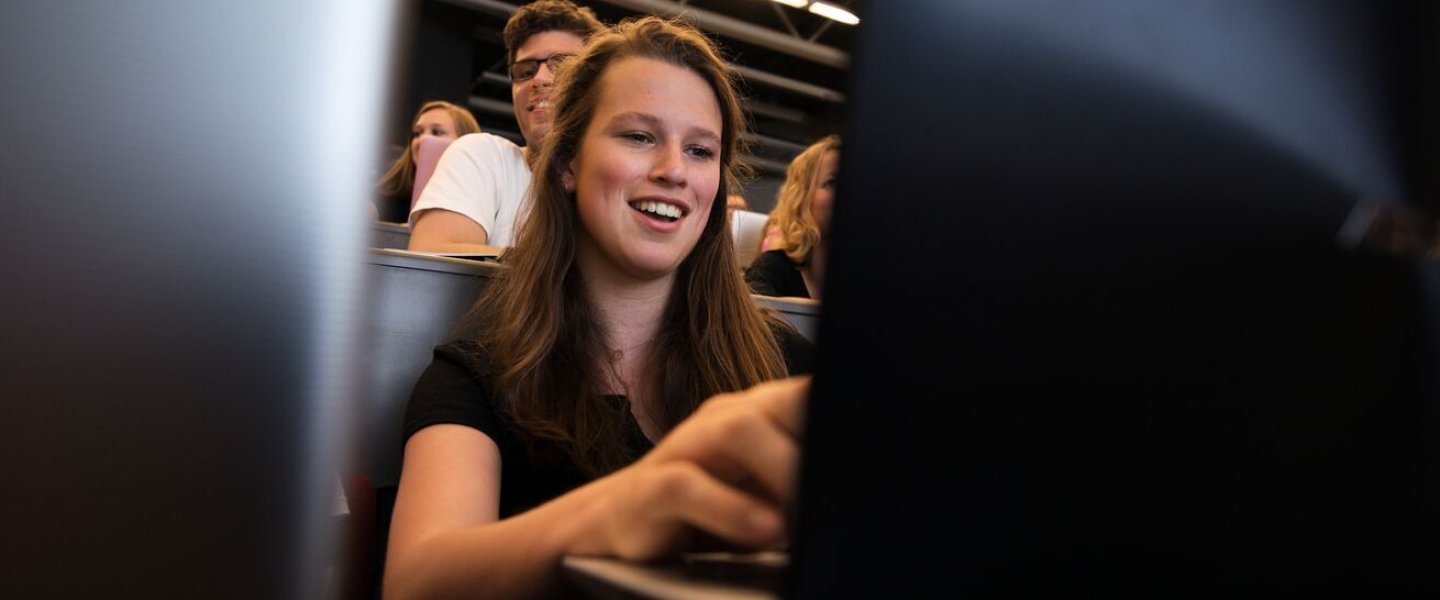
'There is a lot of interest to collaborate with Computational Social Science students'
Last September, a new Bachelor program 'Computational social science' was launched. Jacobijn Sandberg, director of the College of Informatics, talks about the how and why, and also about a second new Bachelor program that is in preparation: 'Science, Technology and Innovation'.
'Computational Social Science' is an interfaculty program that unites aspects from mathematics and computer science, and from the social sciences and humanities. The program started in September 2022 with over eighty students, some sixty of them from abroad and twenty from the Netherlands.
What is 'Computational social science' about and why is it needed?
'Modern technology touches on a lot of aspects. What is the impact on society? How does technology change a culture and how can we change a culture? And of course there are typical computer science aspects, such as: How are information systems put together? What can we do with data? How do we use AI responsibly? The Bachelor 'Computational social science' covers all these aspects.
The program lasts three years and throughout the program several learning lines run parallel to each other: digital expertise, social science expertise and expertise on bringing change in society. Everything is aimed at using computational systems to contribute something good to the world.'
Do you have examples of projects students are working on?
'We start with two projects: one on climate change and one on surveillance. The project on climate change revolves around the question of how to deal with the fact that our water is becoming increasingly polluted, affecting biodiversity. Students are studying pollution caused by residual particles of paint entering the water and are working with an external company to identify and evaluate possible solutions. There is a lot of interest from companies, non-profit organisations and governments to do projects with Computational Social Science students.'